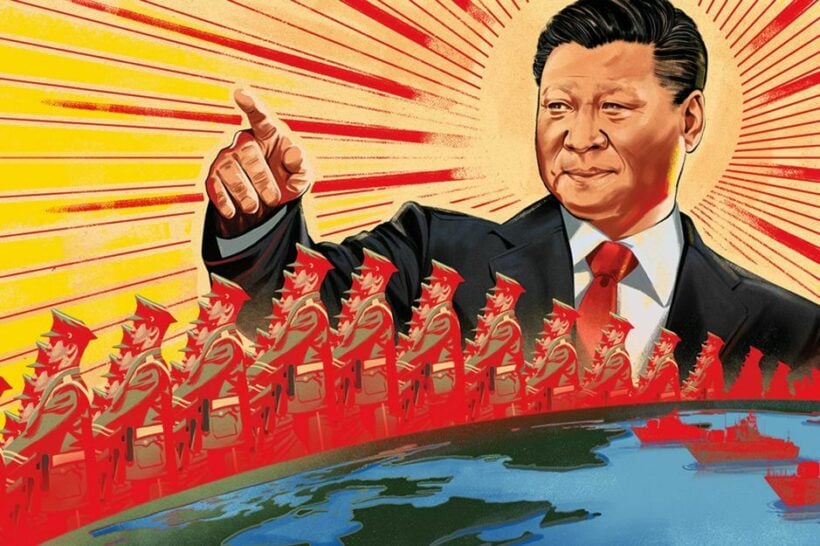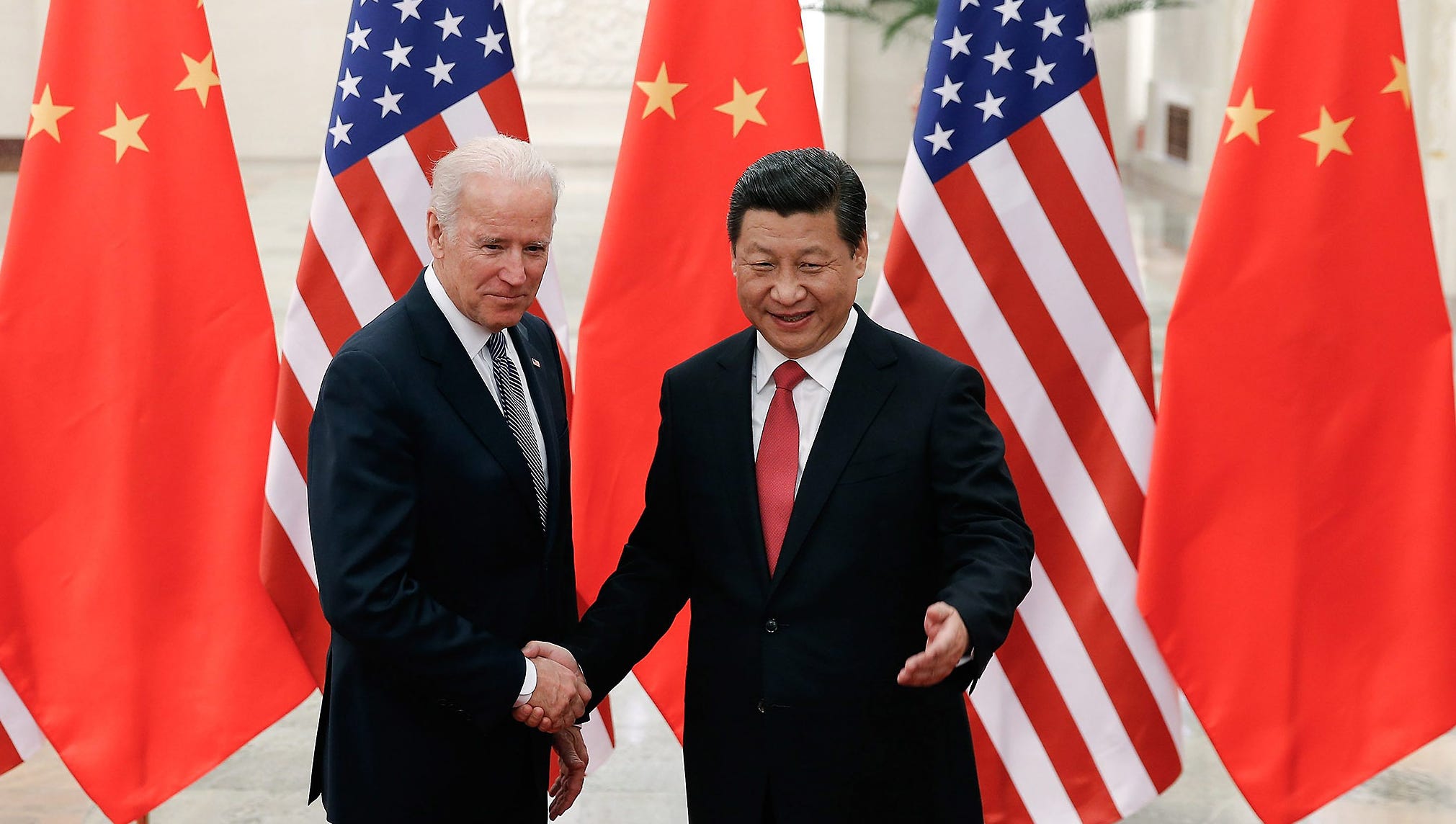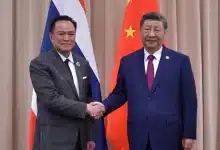Xi Jinping’s recipe for success – more of the same

As China’s immensely tedious political meeting drags on, nothing much is happening except droning announcements by unremarkable men in cheap black suits. So when Xi Jinping walks onto the stage in the Great Hall of the People in Beijing, people pay attention, if only to the pleasingly tailored lines of the chairman’s apparel.
There were no surprises. His address paid tribute to the party’s achievements under his guidance and pledged more of the same. His plans are for economic aggression overseas and an even greater tightening of his iron grip on matters at home. He presented his vision of continuity – Xi followed by more Xi – and provided zero hope for anyone thinking that life in China might get better anytime soon.
Here are five key takeaways:
Empire building
Xi praised the Party’s work in Hong Kong, smashing pro-democracy protests and locking up political dissenters:
“A major transition from chaos to governance”.
On Taiwan, Xi said little new, with weasel words on the “peaceful reunification” that no one except a few billionaires and personal friends of Xi wants. He did, however, firmly underline “reunification,” while at the same time scoring out “peaceful.” Peace is not a priority for Xi, only his glorious legacy. It’s reunification by any means. To be completed on Xi’s watch.
“Resolving the Taiwan question is a matter for the Chinese, it is a matter that must be resolved by the Chinese,” said the chairman with his traditional racist overtones.
Blaming America

China is obsessed with growth, turbo-charged for decades, and that obsession is not set to change any time soon as growth dramatically slows. The slowdown is partly due to Xi’s eccentric zero-COVID-19 policy that has no demonstrable public-health value but is very useful for persuading people to lock themselves up, thus reducing the terrible load on China’s overburdened penal system. US sanctions on Chinese tech are blamed for China’s woes. The solution, apart from locking the non-billionaire population in their homes, is “greater self-reliance,” which sounds a lot like more lockdowns.
Corruption

Xi’s signature anti-corruption campaign resulted in millions of officials being investigated, and many senior figures punished or jailed on graft charges.
“Corruption is the biggest cancer,” said Xi, promising that his 10-year shadow play “will not stop for a moment.”
Most of Xi’s enemies – corrupt to the core – are now off-stage while Xi’s friends – straight arrows everyone – are basically in charge. Xi’s sister, Qi Qiaoqiao, so far untouched by the president’s clean up campaigns, is not attending the congress. She is busy speculating in Hong Kong real estate and, despite market volatility, Qi remains among the ranks of the fabulously wealthy.
Foreign policy

Crimes against humanity in Tibet have slipped down the agenda. Xi is to continue with his aggressive, expansionist foreign policy and pump up China’s growing global clout.
He said…
“China’s international influence, appeal and power to shape the world has significantly increased.”
He also warned other countries against “interfering” in international disputes that he considers internal issues.
The environment

China is highly vulnerable to climate change and pollution. It has only 6% of global water reserves and 20% of the global population. Reversing the damage done by decades of destructive growth has been a major policy objective during Xi’s decade in power.
On the environment, Xi is almost monkish in his tranquillity. He feels at one with nature, one assumes.
“We must remember to maintain harmony between humanity and nature when planning our development.”
Latest Thailand News
Follow The Thaiger on Google News:


























